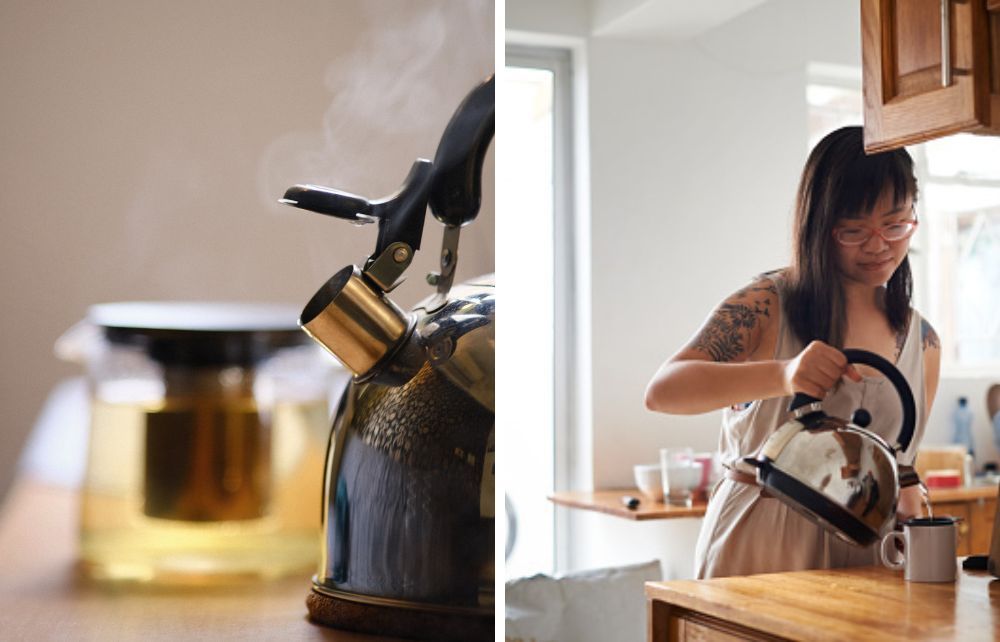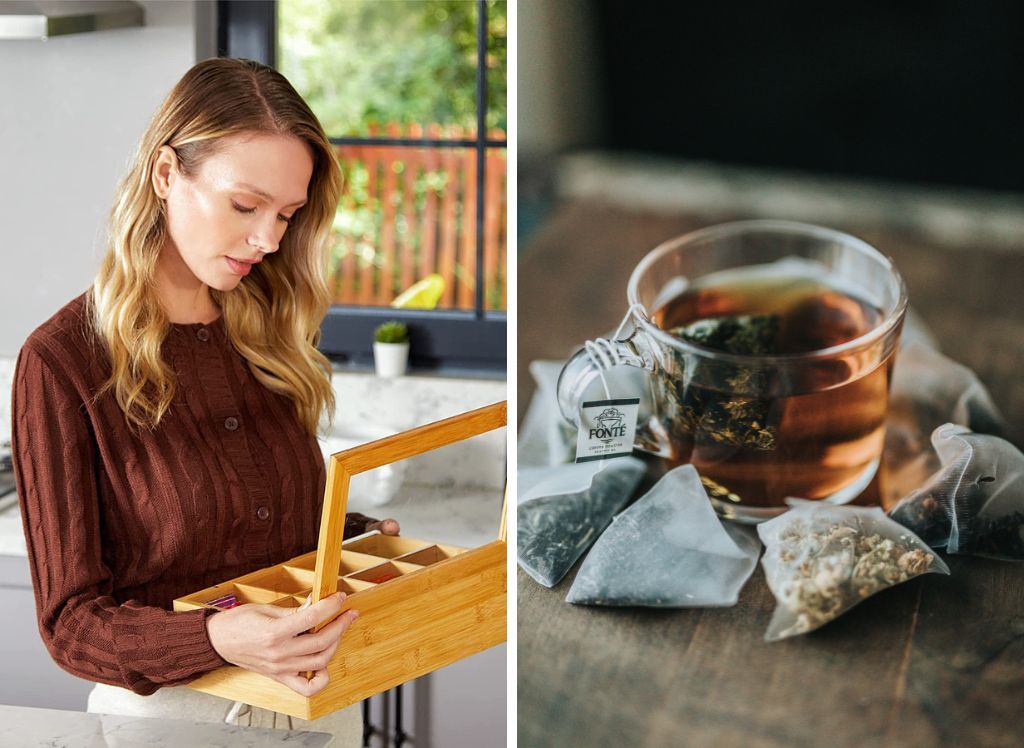If you’ve ever wondered if white tea has caffeine, the answer is yes. However, it does have significantly less caffeine than other types of tea, such as black or green tea. In this article, we’ll cover what makes white tea different from other types of tea, and why it contains less caffeine.
Each product below was independently selected by our editors. Some may have been sent as samples for us to fiddle with, but all opinions in this article are our own. IncredibleRatings is a participant in the Amazon Services LLC Associates Program, an affiliate program that allows us to earn money linking to Amazon.com and associated websites. When you click on or make a purchase through an affiliate link on IncredibleRatings, we might get a small commission at no additional cost to you.
Check out this informational video on white tea, from Red Blossom Tea Company:
What Makes White Tea Different?
White tea is made from the same plant that all teas are made from—the Camellia sinensis plant. What makes it different is how it is processed—white tea leaves are picked at an earlier stage in the plant's growth cycle than other types of leaves, and they are not allowed to oxidize. This means that white tea retains more of its healthy natural compounds than any other type of tea.
Why Does White Tea Have Less Caffeine?
The reason why white tea has less caffeine than other types of tea is because the way it is processed preserves more of its natural compounds, including antioxidants and polyphenols.
These compounds block some of the enzymes responsible for breaking down caffeine in your body, meaning that you don't get as much caffeine when drinking white tea compared to other teas.
Additionally, because white tea is not allowed to oxidize during processing, fewer enzymes are available to break down caffeine molecules into their active form. As a result, you won't experience as much energy boost from drinking it as you would from drinking black or green teas.
Generally speaking, you can expect to get about one-third the amount of caffeine from a cup of white tea compared to what you would find in a cup of coffee (12-25 milligrams per 8 ounces compared to 95-200 milligrams). This makes it a great option for those who want some energizing properties without having too much caffeine in their system.
If you're looking for a low-caffeine beverage but still want to enjoy something with a bit of flavor, then white tea may be a great choice for you!
Types of White Tea
White tea is one of the most delicate and flavorful teas, and as noted above, made from the youngest buds and leaves of the Camellia sinensis plant. It can come in a variety of forms including Bai Mudan (White Peony), Shou Mei (Long Life Eyebrow), Gong Mei (Tribute Eyebrow) and Yin Zhen (Silver Needle).
Bai Mudan is characterized by its strong balance of sweet, fruity flavors and a slight earthy note. Shou Mei has similar taste but has a fuller body, with mellow, woody and slightly toasted notes. Gong Mei exhibits sweet flowery notes as well as hints of nuts and dried fruit flavor. The rarest white tea type is Yin Zhen which is made only the silvery white tips. Its flavor profile is raw, vegetal and grassy, with a refreshing lightness on the palate.
Each type of white tea offers unique aromas, tastes and health benefits that any tea enthusiast should explore.
Conclusion
All in all, if you’re looking for an alternative to coffee but still want something with flavor and health benefits try out some white tea! Unlike other types of teas like black or green teas, which contain higher levels of caffeine due to their oxidation process during production.
White tea has significantly less caffeine due to its early harvest and lack of oxidation making it the perfect choice for anyone looking for a low-caffeine beverage without sacrificing flavor. Whether you’re looking to reduce your daily intake of caffeinated beverages or just want something new and delicious; give white tea a try today!
Need a new tea kettle for your white tea? Check out this article:

Here are some great storage ideas for all those tea bags:











